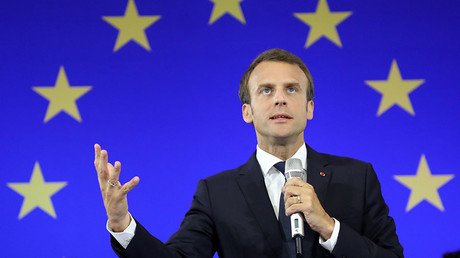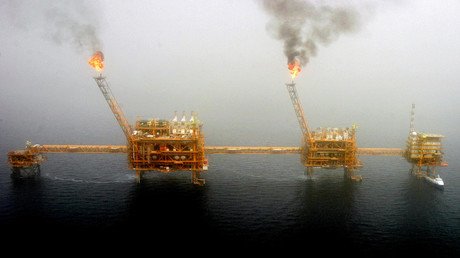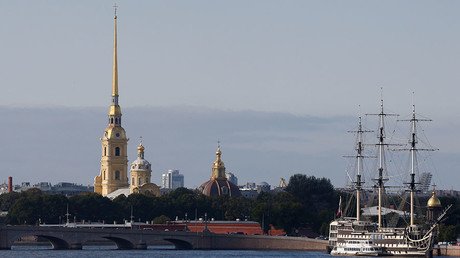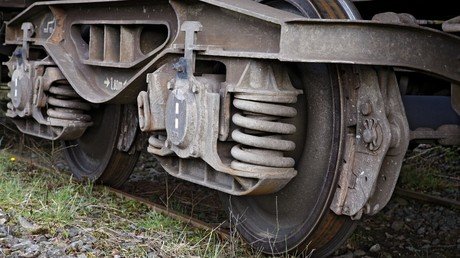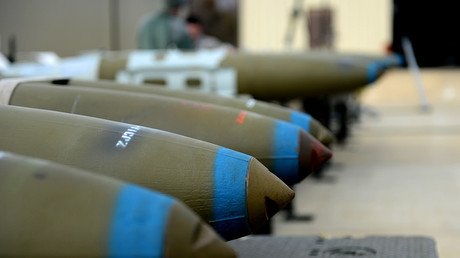Macron arriving for ‘demanding dialogue’ with Putin, but France is in poor position to dictate terms
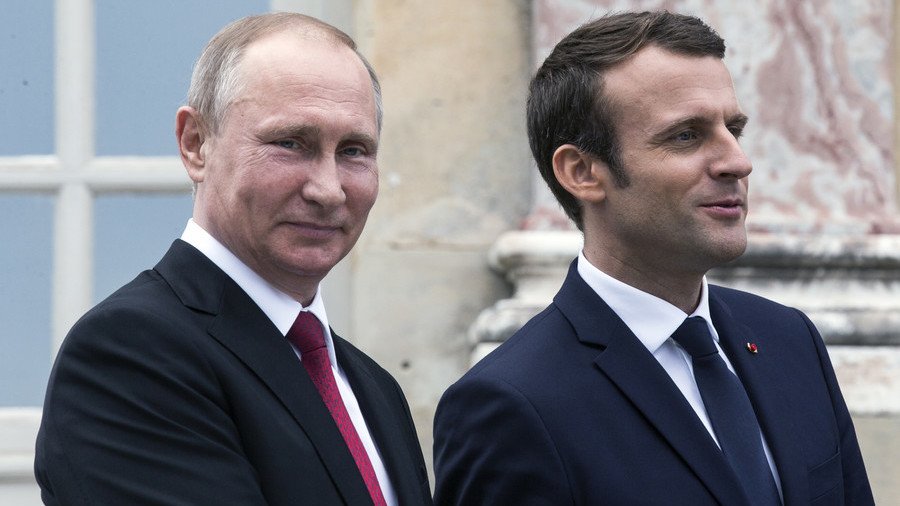
Paris promises Emmanuel Macron will show resolve during his visit to St. Petersburg, but the French president may instead turn on the charm and look for shared interests on Iran and finance, not differences over Syria and Ukraine.
During his two-day visit, a reversal of the lavish reception Vladimir Putin was granted in Versailles a year ago, Macron will meet the Russian president face-to-face for the third time, and the first since the Russian election in March, after which no congratulations arrived at the Kremlin from the Elysee.
‘Talk but keep eyes open’
French diplomats have been working in concert to convince the media that Macron will not give Putin a “soft ride,” particularly amid qualms that French companies may invest billions into Russia during this week’s St. Petersburg Economic Forum, where the French politician is a marquee guest.
“We must have a frank dialog with Russia, but also a demanding dialog,” pledged Foreign Minister Jean-Yves Le Drian.
“A lot needs to be done to convince the Russians, because Moscow has interests in the Middle East, especially Syria, and its stance toward the West is aggressive,” a highly-placed diplomatic source told Reuters.
“We must talk, but keep our eyes open,” another diplomat told Le Figaro.
The principal divisions between Moscow and Paris remain unchanged from the time of his predecessor, Francois Hollande. Macron is expected to meet with human rights organizations broadly opposed to the Russian government, and will implore Russia to do more to enforce the Minsk Protocol in a bid to quieten the simmering tension in eastern Ukraine.
On Syria, Macron described himself as the initiator of last month’s airstrike, punishing Damascus for the alleged chemical weapons attack in Douma, and in one interview boasted of phoning Putin on the evening of the attack – the two often speak at a distance – and informing him of the fait accompli. Despite his renewed vigor and penchant for drawing “red lines,” unlike his predecessor he does not maintain that Bashar Assad’s removal is a prerequisite for any future peace deal.
Saving the Iran deal
But it is the third key international item on the two leaders’ pre-announced agenda that will likely dominate the conversation – Iran. Any desire for Macron to score easy points at home by criticizing Moscow will be offset by the need to keep Putin onside in the unenviable task of keeping the 2015 nuclear deal alive in the wake of Donald Trump’s decision to withdraw from it.
Russia is considered to have the warmest relationship with Tehran out of all the six world-power signatories of the JCPOA, and, according to French media, Putin is seen as a potential conduit for a behind-the-scenes diplomatic effort urging the Islamic Republic not to overreact in response to what is likely to be an imminent ratcheting-up of sanctions imposed by Washington.
But Macron will be wary, as Putin watches the profound disarray among the Western powers (“When Putin sees you are weak, he uses it,” Macron told Fox News in April) and will likely try to avoid strutting around, particularly considering his guest status.
“Macron is more likely to charm Putin than try to confront him,” said Aleksandr Artamonov from specialist foreign affairs publication International Affairs.
“The anti-Russian rhetoric will be toned down” predicted Evgeny Osipov, from the Institute of World History in Moscow, during a phone interview with RT.
A counterweight to the US?
Yet Osipov doesn’t believe predictions that have swung to the other end of the pendulum, prophesying that a new European-based moderate alliance for dealing with Iran might form from the meeting with Macron, who has made it a point of his presidency to drive a more independent foreign policy and wouldn’t be able to resist the role of international diplomatic hero.
“Russia can’t be a counterweight to the US on the Iran deal, because the European countries are incomparably more integrated economically than Russia or Iran. But Trump quitting the JCPOA does change the balance of power and reshuffle the deck, so maybe this could push Macron and Putin closer to a compromise,” said Osipov.
It’s equally possible that the two leaders will decide to play it safe and avoid any big pronouncements on politics altogether, focusing mainly on business, particularly as the context encourages it (a part of the visit was originally due to take place in Kremlin, but then the entirety of it was relocated to the St. Petersburg economic forum).
France is the second largest trading partner in Europe for Russia, after Germany, and the volume of goods going between two countries grew by double figures in 2017. But even here, as elsewhere at the St.Petersburg forum, sanctions against Russia will be the specter haunting any potential international deal, and while other governments in Europe seem to be softening their stance, Macron is unlikely to join their number.
Think your friends would be interested? Share this story!
